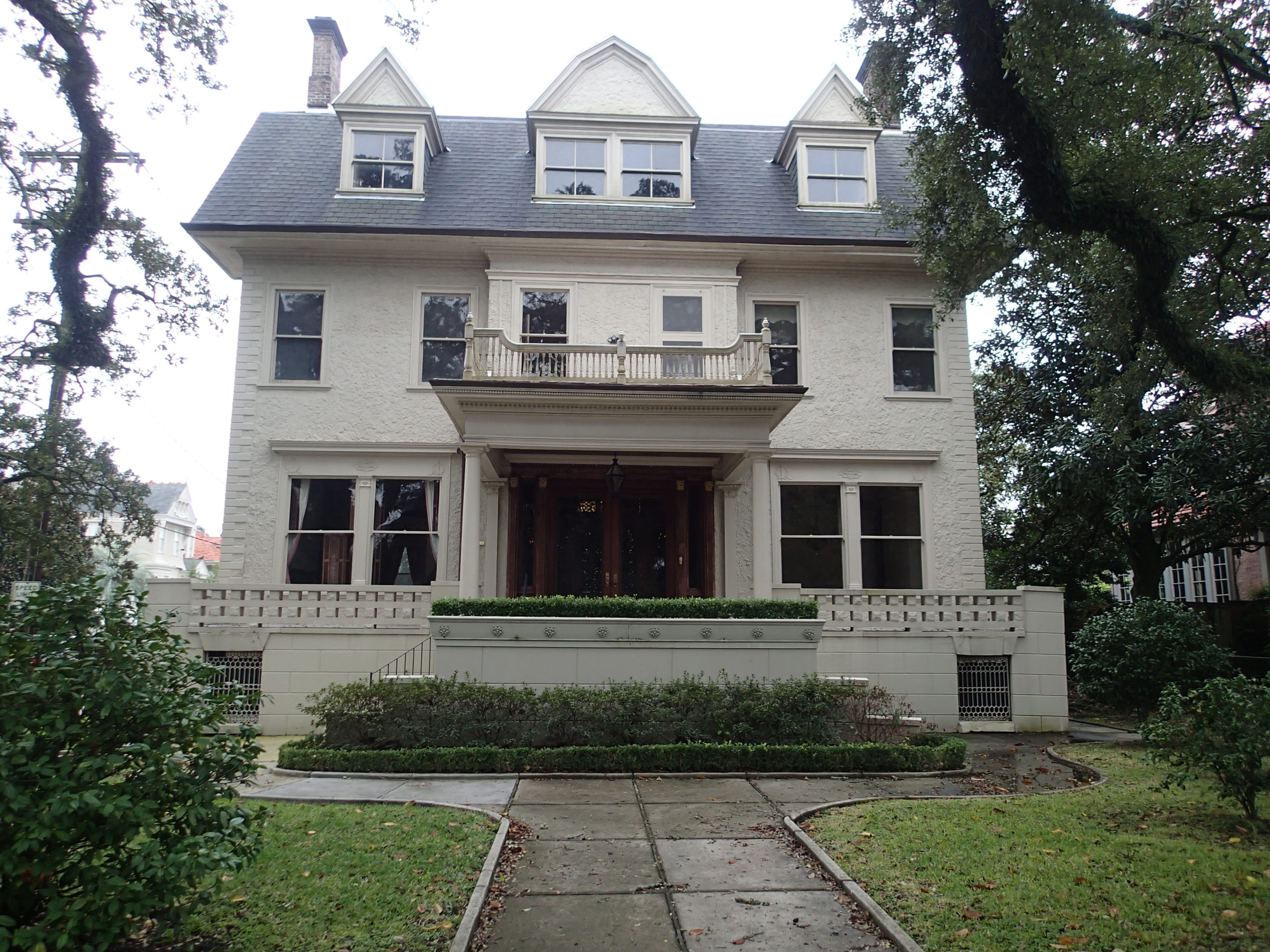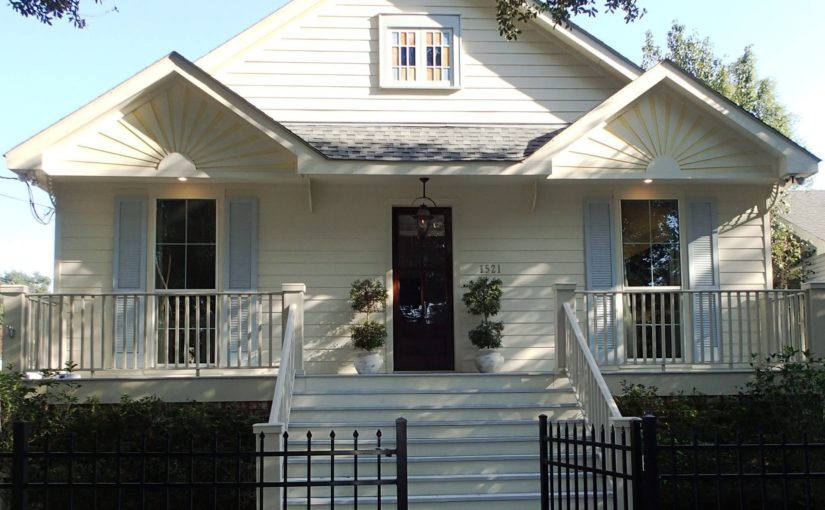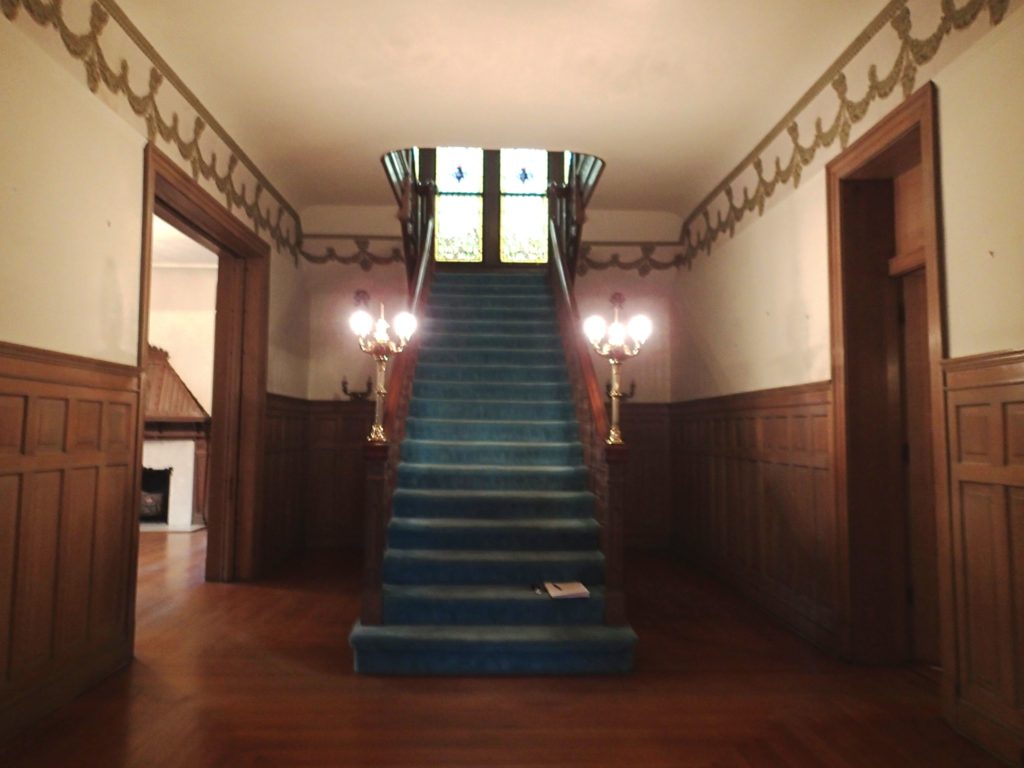
The illumination of homes has changed over the years. Candles and oil lamps were among the first devices to light our homes, followed by gas lamps, then electricity, which is currently in use today.
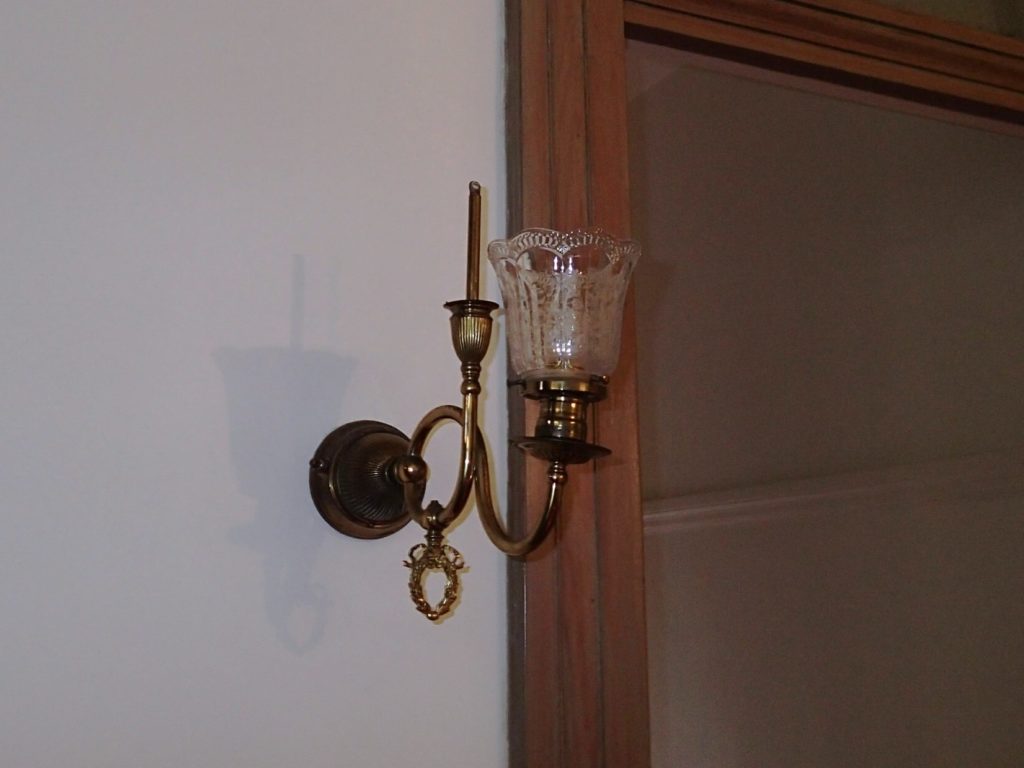
It is not uncommon during an inspection of a historic home in New Orleans to come across abandoned gas lines in an attic which once supplied gas to overhead or wall lighting. Occasionally I’ll find and abandoned gas wall bracket or valve on a wall where a gas wall fixture once resided. Rarely do I find older fixtures which have been converted to electricity and are still in use, but it does happen.
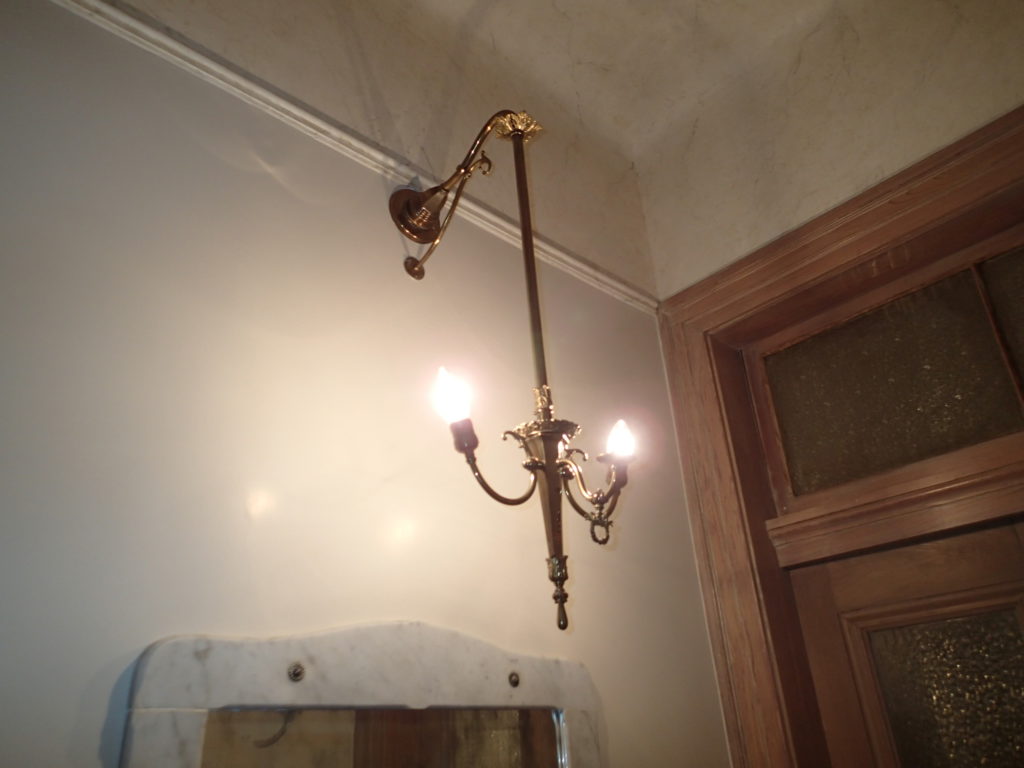
Converted gas bathroom fixture
Once during an inspection of an early 1900’s home in New Orleans, most of the fixtures in place were original gas fixtures converted to electricity. The date of conversion is not known. The gas lamps on the newel posts of the stair well at the center of the room are the main focal point when entering the home.
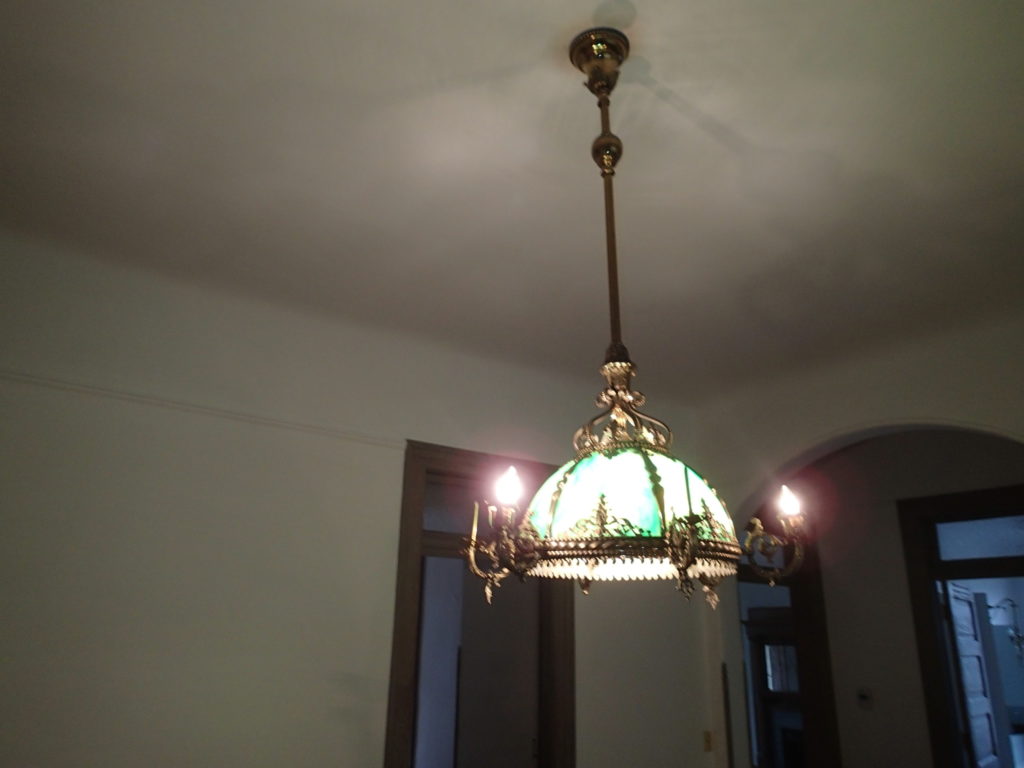
Converted gas hall fixture
Original converted gas lamps were found throughout the home, even in the closets. As a home inspector who performs inspections on many older New Orleans homes, it was impressive to see this many fixtures still in place and in good condition. Love looking at the historic lighting. It was like a step back in time. Inspecting historic homes is always interesting and rewarding.
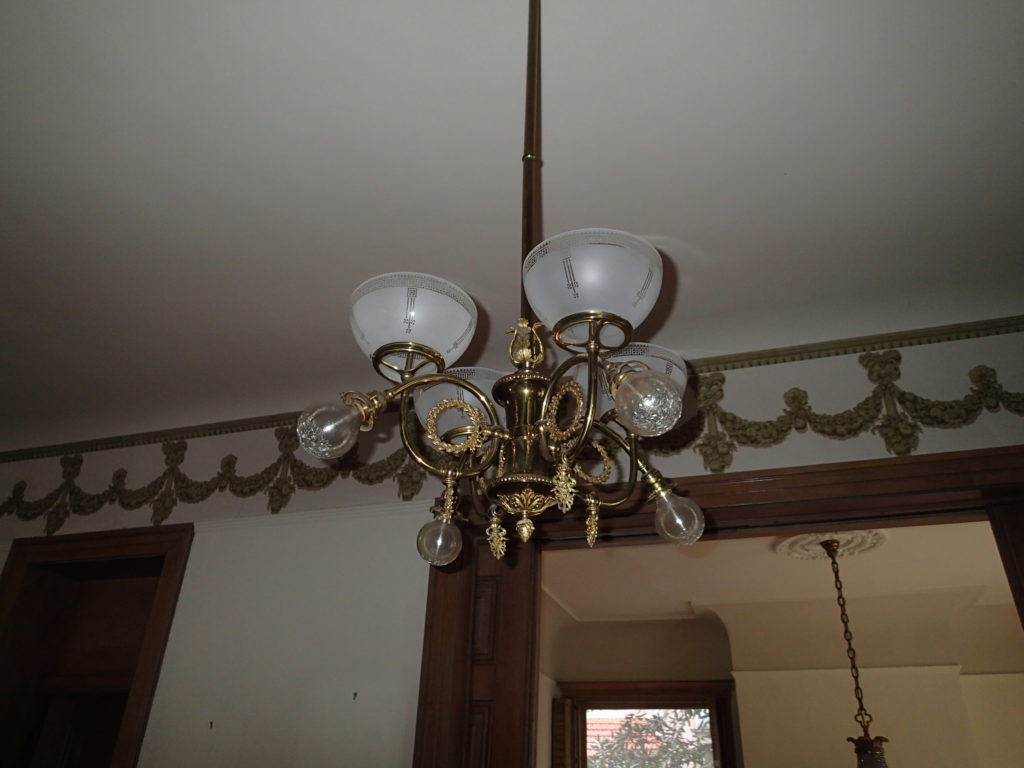
Converted gas hall fixture

